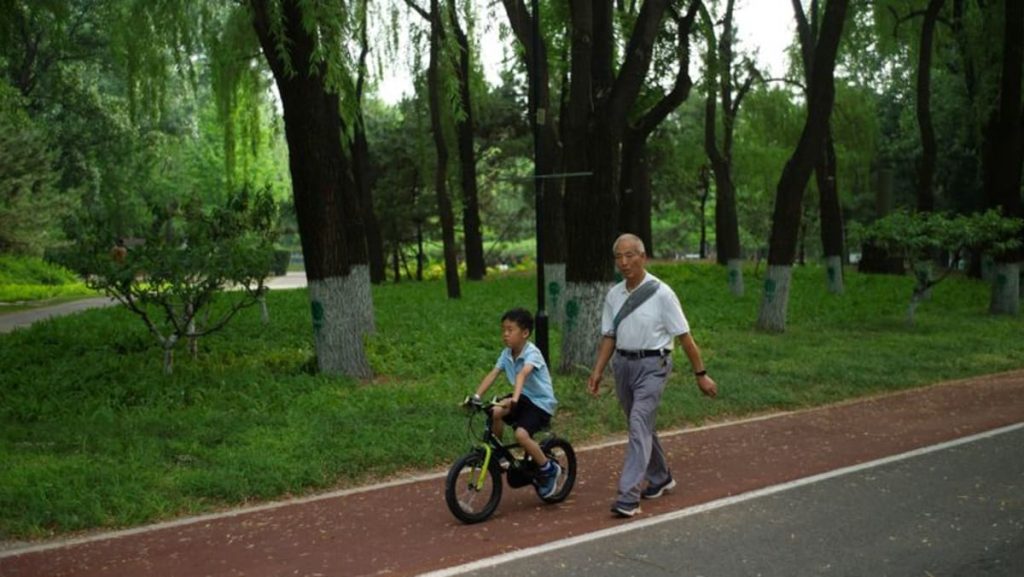China’s rapidly aging population is presenting significant societal challenges, particularly the escalating prevalence of dementia. With over 16 million people currently diagnosed, representing nearly 30% of the global total, dementia is no longer an individual health concern but a national crisis demanding urgent and comprehensive action. Recognizing this growing burden on families and the healthcare system, the Chinese government has launched a national plan to combat dementia, aiming to establish a robust prevention and control system by 2030. This comprehensive strategy involves a multi-pronged approach encompassing prevention, screening, diagnosis, treatment, rehabilitation, and long-term care, reflecting the complex and multifaceted nature of dementia management.
The national plan, a collaborative effort involving fifteen government departments including the National Health Commission, underscores the seriousness with which China is approaching this issue. The plan is anchored by seven key tasks and targets, aiming to create a comprehensive and integrated system to address all aspects of dementia care. This ambitious plan comes as China’s elderly population (60 years and older) is projected to surge by at least 40% by 2035, reaching over 400 million, equivalent to the combined populations of the United Kingdom and the United States. This demographic shift necessitates proactive measures to manage age-related health challenges, with dementia being a prominent concern. The plan emphasizes early intervention through widespread cognitive screenings, targeting those most at risk to slow the progression of the disease and improve the quality of life for those affected.
Central to the plan is the establishment of a comprehensive care system for dementia patients. This includes expanding and improving specialized care services within existing elderly care institutions. The government aims to have dedicated dementia care units comprising over 50% of all elderly care facilities by 2030. This ambitious target reflects the anticipated growth in dementia cases and the pressing need for specialized care tailored to the unique needs of this population. Furthermore, the plan recognizes the crucial role of trained personnel in providing quality dementia care. It sets a target of 15 million trained dementia care professionals by 2030, a significant increase that will require substantial investment in training and education programs.
This workforce development component is crucial for ensuring that individuals with dementia receive appropriate care, support, and a dignified quality of life. The proposed expansion of care services, coupled with the focus on training specialized personnel, demonstrates a commitment to providing comprehensive, long-term support for those living with dementia and their families. The government’s plan acknowledges that dementia is not just a medical issue but a societal one, impacting families and communities across the country.
Beyond the immediate focus on care, the national plan emphasizes preventative measures. By promoting widespread cognitive screenings for the elderly, the government aims to identify individuals at risk of developing dementia early on. Early diagnosis is critical for implementing interventions that can potentially slow the progression of the disease or manage its symptoms effectively. This proactive approach aims to mitigate the future burden of dementia on the healthcare system and improve the overall well-being of the aging population. The plan’s emphasis on prevention underscores the understanding that tackling dementia requires a multifaceted approach, addressing both current needs and future challenges.
The comprehensive nature of the Chinese government’s plan reflects a deep understanding of the complex challenges posed by dementia. Addressing the projected increase in dementia cases requires a national strategy that goes beyond immediate medical care and encompasses preventative measures, early diagnosis, specialized care facilities, and a robustly trained workforce. The integration of these various elements is crucial for creating a sustainable and effective system to manage the growing burden of dementia in China. By prioritizing the needs of the elderly population and investing in long-term solutions, China is taking significant steps towards mitigating the societal impact of this debilitating condition. The success of this national plan will undoubtedly influence global strategies for dementia care and serve as a model for other countries facing similar demographic shifts and the associated healthcare challenges.










